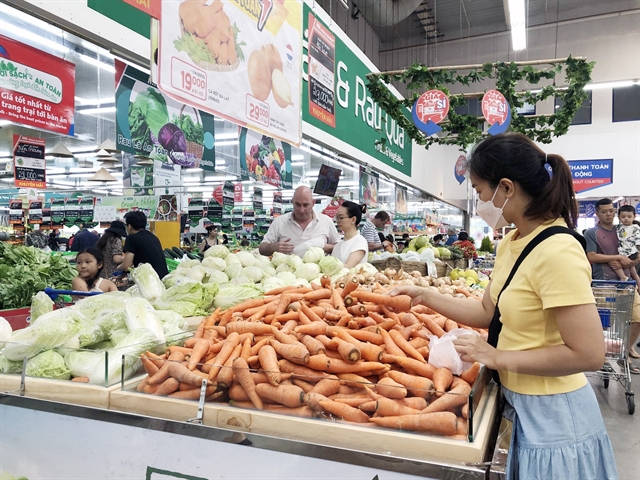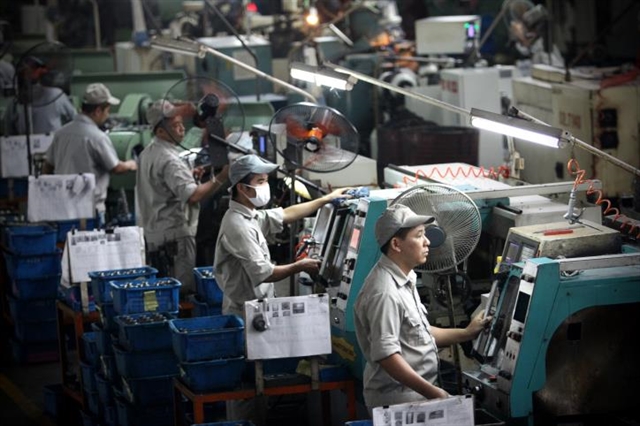 Economy
Economy

 |
| Workers during a shift in a factory in the northern province of Bắc Ninh. — VNA/VNS Photo |
HÀ NỘI — Businesses have been facing many difficulties in declaring goods eligible for the Government's 2 per cent value-added tax (VAT) cut, said Đậu Anh Tuấn, deputy secretary-general of the Vietnam Chamber of Commerce and Industry (VCCI) and head of its legal department.
Under a government support programme, certain goods are eligible for an 8 per cent VAT rate, instead of the standard 10 per cent. The programme was introduced post-COVID-19 to support the recovery of businesses and the economy. Since its introduction, it has received strong support from the business community.
Economists and industry leaders have called on the Government to extend the support programme, at least until the end of this year in light of the adversities faced by numerous economic sectors and the business community.
The implementation has been challenging as it was based on codes for economic sectors, a document traditionally used for statistical purposes, which makes specifying eligible groups of goods and services difficult.
For example, the telecommunications and IT businesses said it's difficult to classify their products and services due to an acute lack of supporting legal documents. This was an issue widespread in other sectors, including manufactured metal and chemical production.
Many businesses admitted there was no way of knowing for sure which products and services were eligible for the tax cut, even after consulting with the tax authorities.
So far, they have been getting a generic response that requests compliance to the "Prime Minister's Decision No. 43/2018/QĐ-TTg, and compares the codes of the goods and services provided by the company with the codes of the goods and services in Annexes I, II, III issued with Decree No. 44/2023/NĐ-CP for correct implementation."
Trần Công Thành, CEO of Vibest Technology and Media Corporation, said that compliance and transparency in financial and accounting data are necessary to demonstrate the integrity and credibility of a business.
He said the programme had been a great help in the post-COVID-19 period, relieving significant pressure on struggling businesses.
But as a certain number of products and services become no longer eligible for the tax reduction, classifying and issuing financial invoices for them have become overly complicated and time-consuming. There have been instances where mistakes were made, leading to costly adjustments.
Thành said economic policies should be linked to business development and stability, as well as the implementation of such policies. Adjustments should be made gradually to avoid causing difficulties for businesses.
Tuấn said the numerous difficulties in determining whether the 8 per cent or 10 per cent VAT rate applies have led to companies hiring extra accountants to adjust invoices and records. To make matters worse, contracts could not be finalised as there were disagreements on what the tax rate was.
The chamber suggested that a solution would be for the tax authorities to bring the VAT rate down to 8 per cent across the board. — VNS




